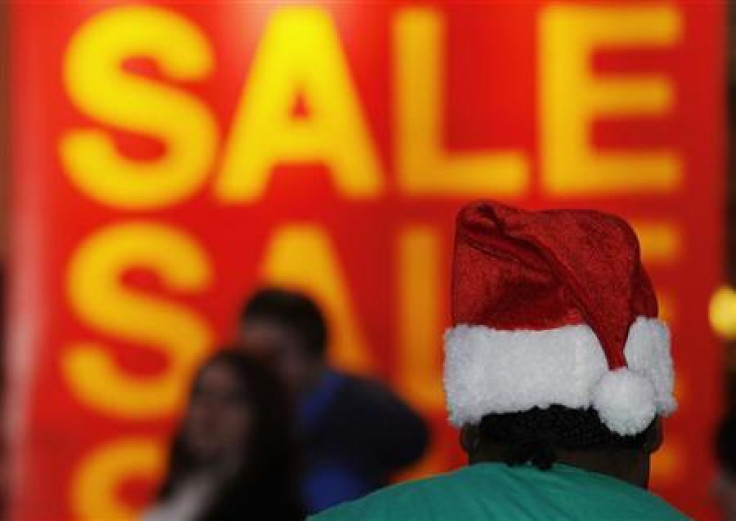UK Boxing Day Sales: Footfall in high streets and shopping centres declines as online stores gain, Springboard says
Some stores such as Harrods which are visited by Boxing Day bargain hunters not affected.

UK shoppers preferred online shopping to visiting traditional high streets and shopping centres on Boxing Day (Monday), according to Springboard, a leading provider of retail performance insights in the country.
As of 4pm BST on Monday, UK Boxing Day footfall, a measure of shoppers visiting physical stores, was down 7.2% year-on-year. While the shopping centres saw footfall reduce by a huge 15.5%, the country's high streets saw a comparatively lesser fall of 4.7% when compared to Boxing Day 2015. Physical stores located out of town were the least hit with footfalls down by just 3% year-on-year.
While this was based on partial data, Diane Wehrle, insights director at Springboard, estimated that for the full 24 hours, Boxing Day 2016 footfall could be down 5% compared to the previous year.
Springboard said the number of shopping transactions done on online websites increased on Boxing Day, up 11.5% year-on-year, indicating the growing competition between traditional retailers and online stores.
According to Reuters, sales on Boxing Day have traditionally been seen as an indicator of the strength of Christmas shopping in that particular year. However, it is said that with the growth of online shopping, discounts offered on products are spread more evenly across the entire year leading to fewer people visiting physical stores to make purchases.
However, there were certain stores that were not affected, especially those that are generally visited every year by Boxing Day bargain hunters. Harrods, the luxury department store in London, was one such example.
Michael Ward, MD at Harrods, said his store saw good footfall on Boxing Day. He was cited by the Guardian as saying: "I have to say we have never seen numbers like it, 20 minutes after we opened they were still streaming in from Sloane Street...Christmas has been particularly strong this year."
While many shopping stores reportedly gained as they saw an increase in foreign tourists who wanted to take advantage of the fall in the value of the pound, Ward said there was more to this. "To some extent, it's the pound being weaker but also London is seen as a much safer place to come and shop. So the atrocities in France and in Germany have meant that people will centre on London as a destination that they feel safer in," he said.
© Copyright IBTimes 2024. All rights reserved.





